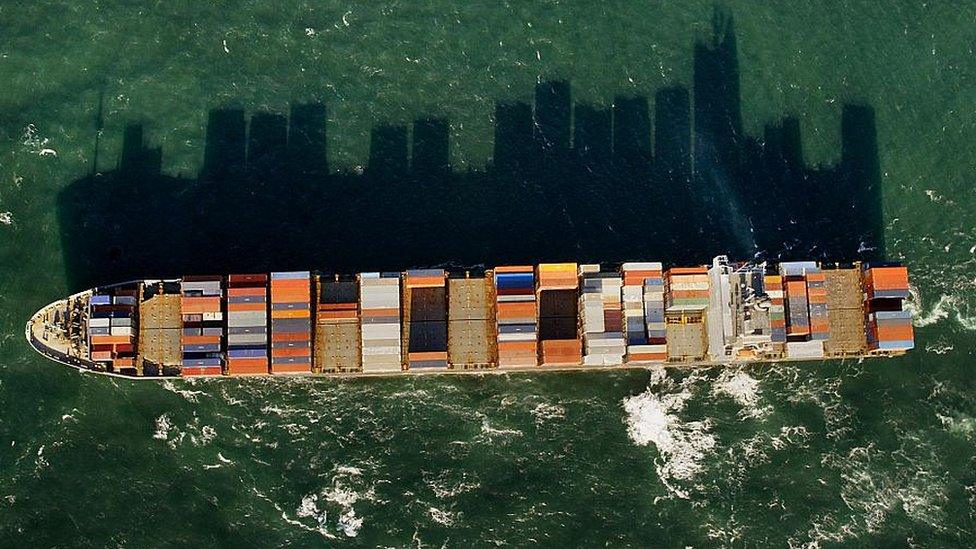Coronavirus: 'Up to 2,000' UK seafarers stranded
- Published

Up to 2,000 UK seafarers are stranded on ships around the world because of coronavirus lockdowns, the industry's trade body has told the BBC.
The UK Chamber of Shipping wants the UK government to become the first to sign up to a global plan to get crews home.
And the Nautilus International maritime union said seafarers stuck on ships for months were depressed and homesick, "with no end in sight" to their ordeal.
The government said it was working to "ensure" those affected could get home.
Because of port and air route bans for individual travellers, many of the world's 1.6 million, external seafarers cannot go home, while relief crews cannot be brought in.
They are working past the end of their contracts, external and the International Chamber of Shipping estimates 150,000 of them are stuck on board cruise ships, transporters, tankers and other vessels.
The UK Chamber of Shipping said up to 2,000 - or around one in 13 - of the UK's 25,750 seafarers, external were among the stranded.
It has written to Shipping Minister Kelly Tolhurst, urging the UK government to become the first in the world to sign up to the International Maritime Organisation's new plan, external to ensure crew changeovers can resume.
The letter, seen by the BBC, also calls for seafarers and offshore workers to be exempt from "any potential air travel quarantine restrictions which may be introduced". Getting them home is "increasingly taking on a humanitarian dimension", it adds.

A SIMPLE GUIDE: How do I protect myself?
AVOIDING CONTACT: How to self-isolate and exercise
LOOK-UP TOOL: Check cases in your area
MAPS AND CHARTS: Visual guide to the outbreak

Mark Dickinson, general secretary of Nautilus International, said many UK seafarers were working 90-hour weeks.
He said: "It's a confined workplace - not the Hilton Hotel - for three, four or five months. The accommodation is fairly basic and you're with a small group of people.
"You get into a situation where you think, 'I've got six weeks to go,' 'I've got four weeks to go,' and even when this is extended by 24 hours it's pretty awful. It's worse when it's so open-ended."
Mr Dickinson praised the UK government for classifying seafarers as key workers and allowing them to travel via the country's ports and airports, unlike those of many other countries.
He added: "My frustration has been with the governments who faff about, locking things down without actually giving any thought to the consequences of that."
A Foreign Office spokesperson said it was a "worrying time for British crew on board cruise ships around the world", but it was "primarily the responsibility of their employers" to ensure their welfare and safety.
They added: "The government is in direct contact with these operators about the issues, as well as directly with many crew members and their families, and we will continue to do what we can to ensure UK crew can access flights home."
Ms Tolhurst has said she is in "constant dialogue" with operators and that seafarers have "responded magnificently" to the coronavirus crisis,, external "working round the clock to keep the nation fuelled, fed and supplied with vital goods".